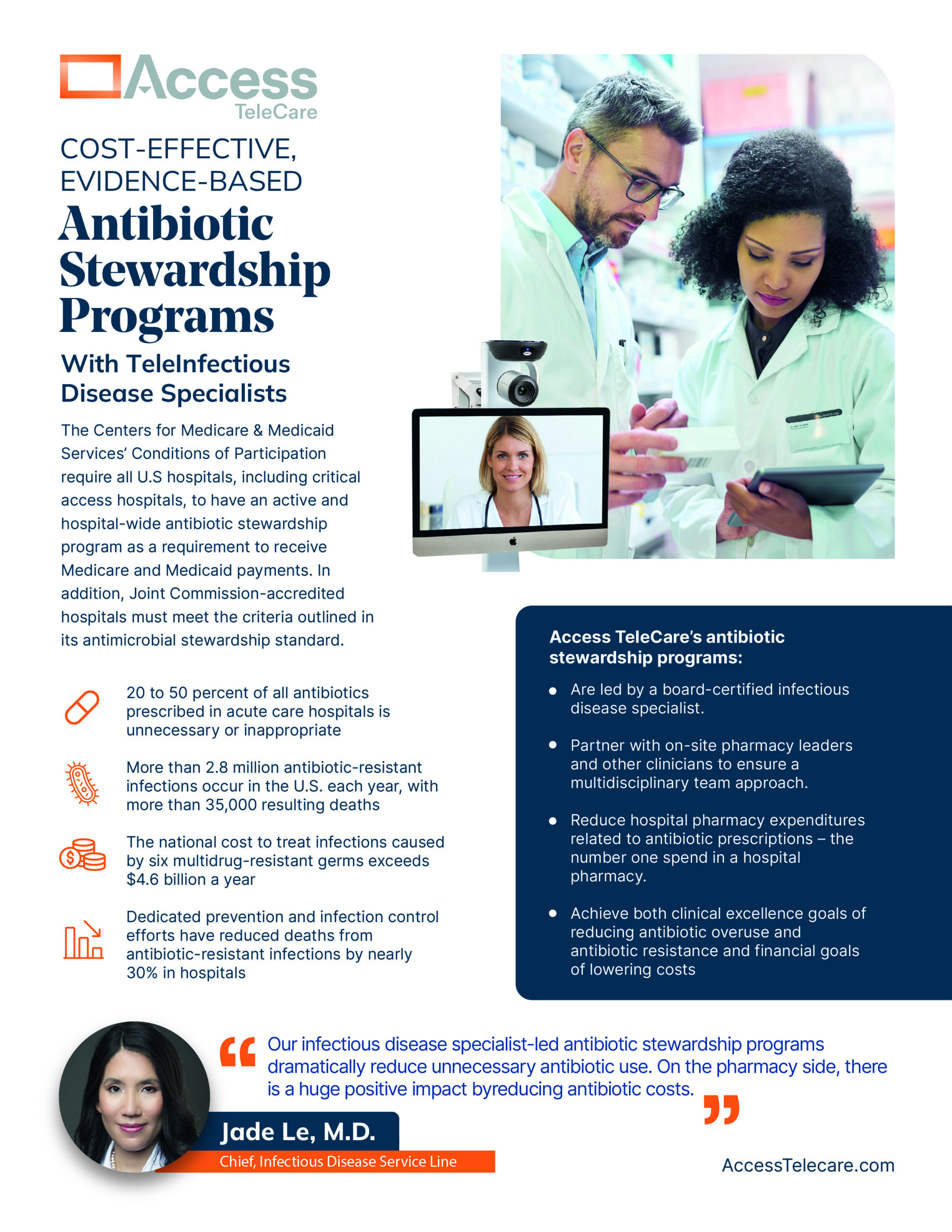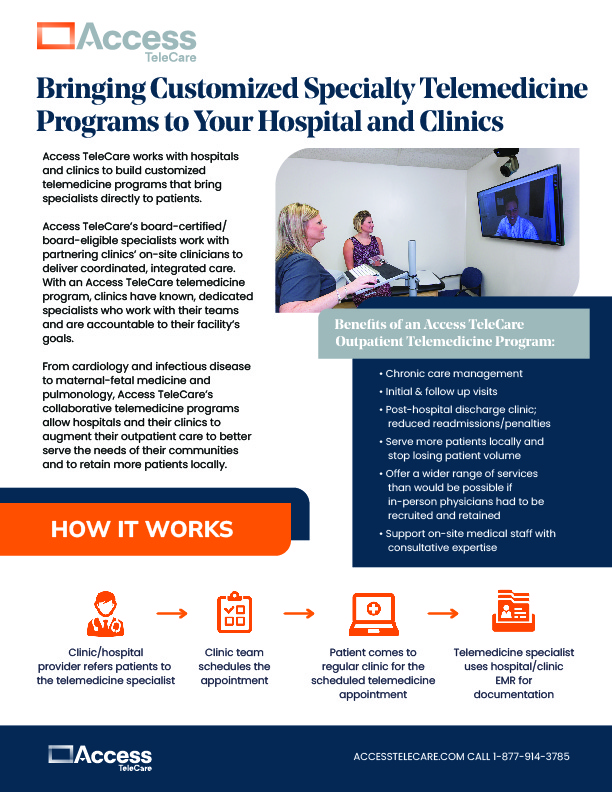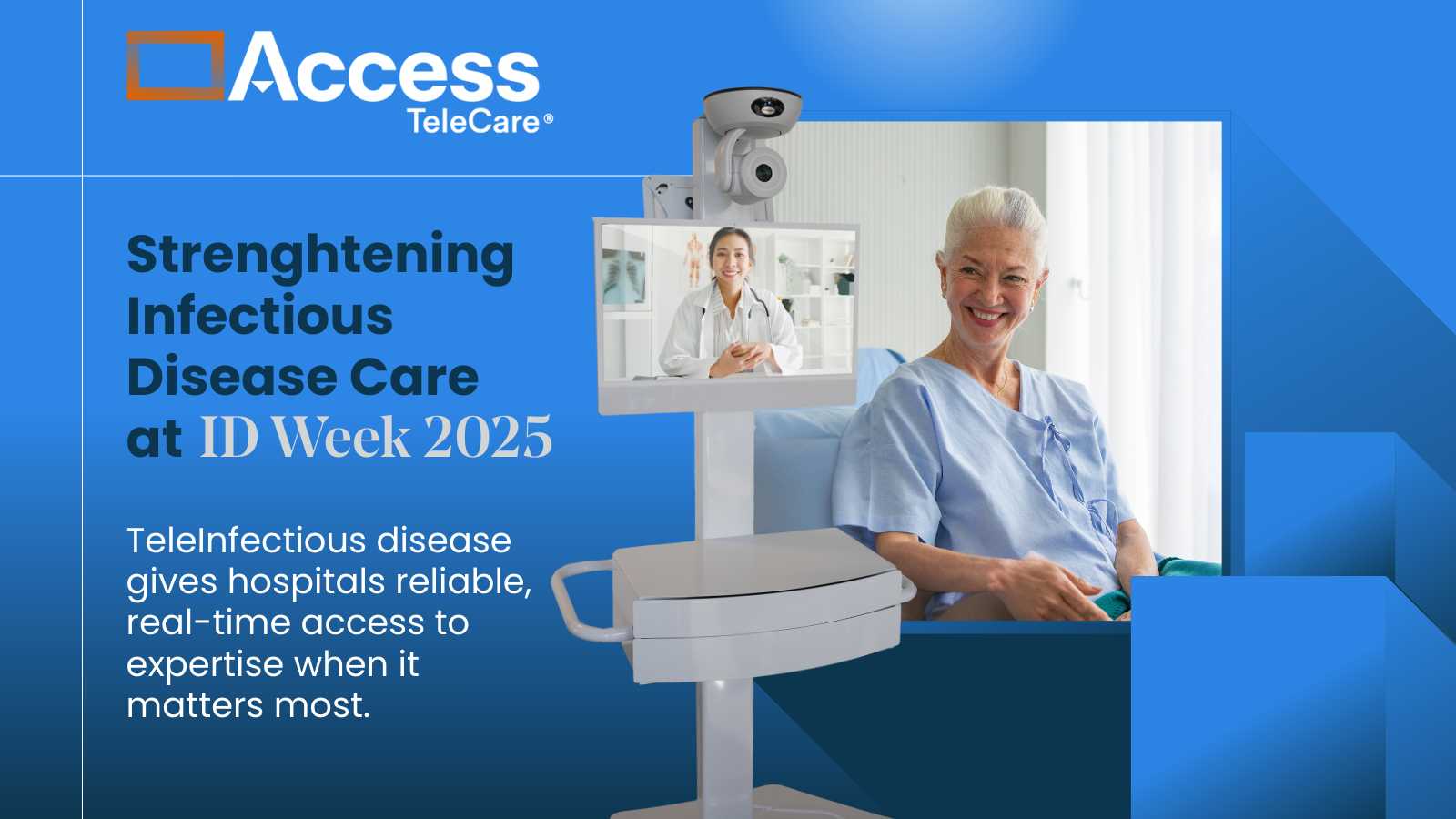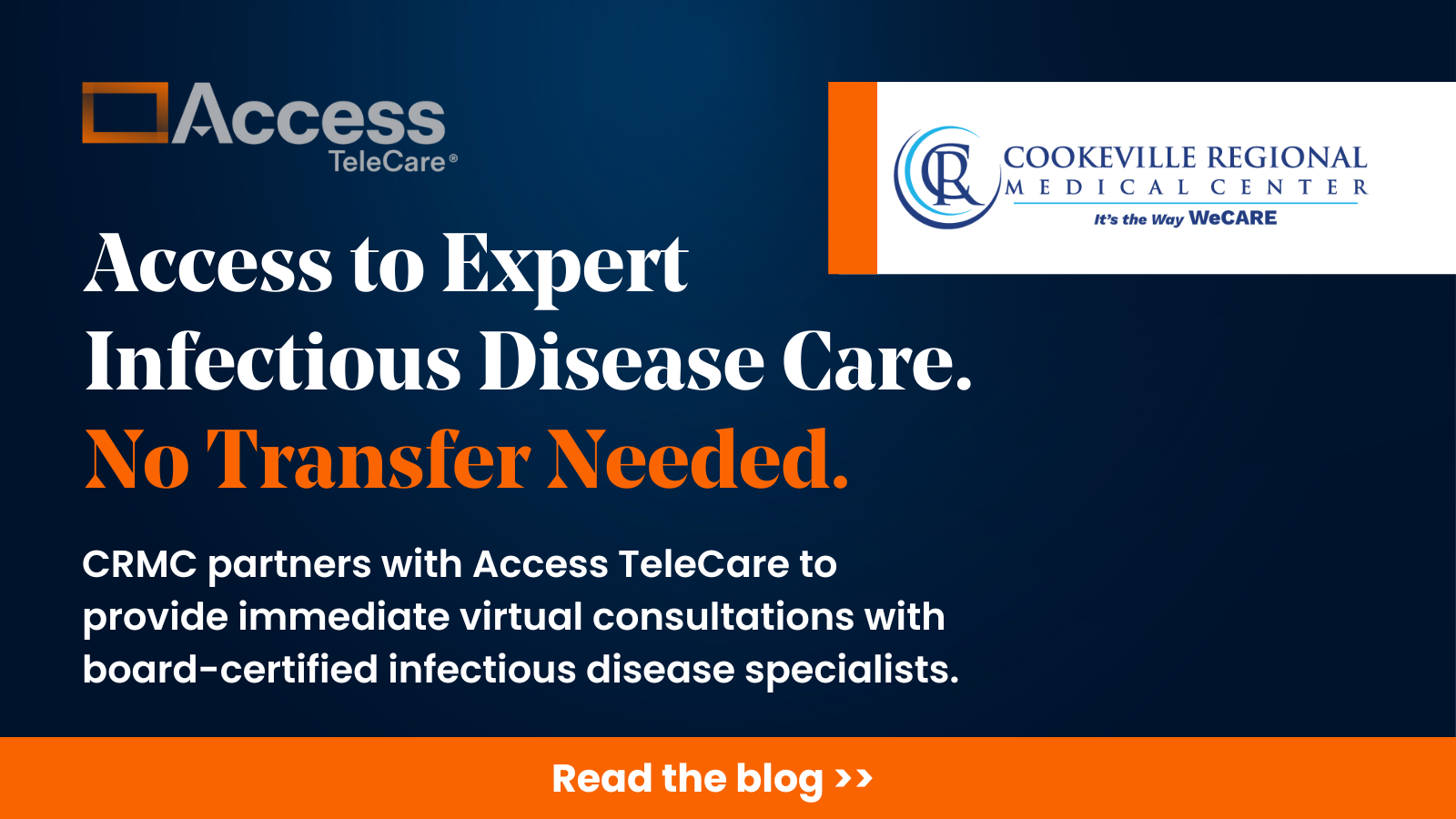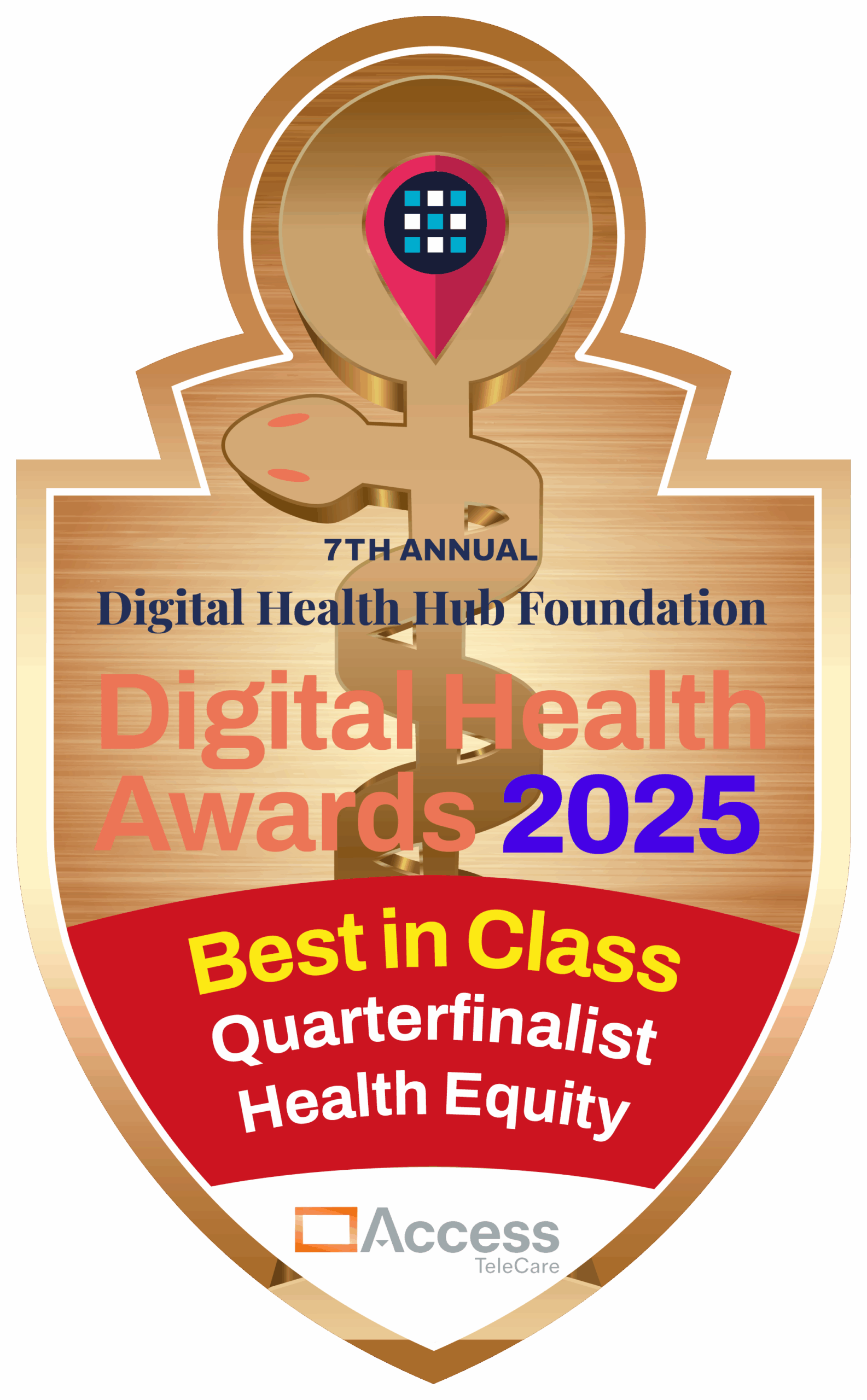teleInfectious Disease Solutions
Board-certified infectious disease specialists are available to diagnose, treat and manage patients with difficult, unusual, or complicated bacterial, fungal, viral and parasitic infections, such as meningitis, sepsis, complicated urinary tract infection, pneumonia, cellulitis and abscess, surgical site infections, osteomyelitis, prosthetic joint infections, transplant infections, and HIV. Our telemedicine infectious disease program decreases unnecessary transfers, increases census, and supports local physicians to manage a higher complexity of disease.
Telemedicine Antibiotic Stewardship Program
Our telemedicine antibiotic stewardship program can be implemented in all hospitals, even those without in-house or on-site infectious disease specialists. These programs:
- Reduce hospital pharmacy expenditures related to antibiotic prescriptions – the number one spend in hospital pharmacy.
- Achieve clinical excellence goals of reducing both antibiotic overuse and antibiotic resistance and financial goals of reducing costs.
- Partner with other virtual specialists and on-site teams.
Outpatient Infectious Disease Telemedicine Program
Through our outpatient telemedicine solutions, clinics can have access to infectious disease specialists for initial and follow-up visits for patients needing treatment and chronic care management for:
- Infected decubitus or pressure ulcers
- Infected diabetic foot ulcers
- Post-surgical wound infections
- Post-hospitalization care, including long term antibiotic therapy i.e., for osteomyelitis, bacteremia, endocarditis, epidural abscess, or intraabdominal abscess
Explore teleInfectious Disease Case Studies


